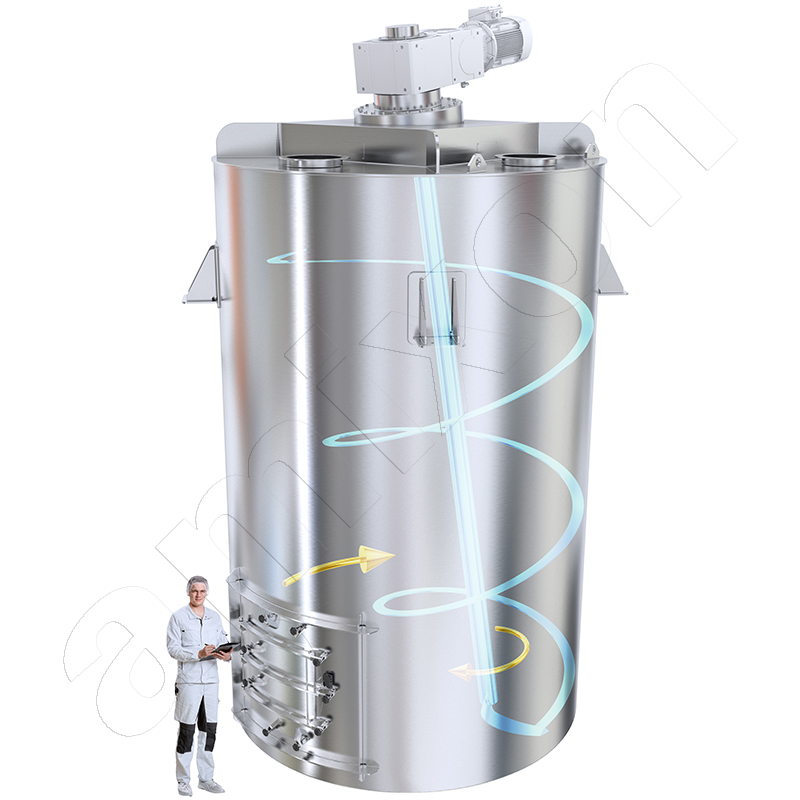
methyl cellulose
Methyl cellulose is a derivative of cellulose in which some hydroxyl groups have been replaced by methoxy groups. It is produced by reacting alkaline-activated cellulose with methyl chloride. The fine, white powder is soluble in cold water and forms viscous solutions that solidify into a gel when heated. This thermoreversible property makes methylcellulose an important additive in construction chemicals, pharmaceuticals, and the food and cosmetics industries. Methylcellulose acts as a thickening agent, emulsifier, binding agent and stabiliser. In tile adhesives, plasters and fillers, it improves water retention and processing properties. In food, it influences texture and melting behaviour.
Since methylcellulose gives the end products crucial functional properties, it must be absolutely homogeneous. As a mass product, it must not exhibit any fluctuations in quality. The Gyraton® mixing silos from amixon homogenise every type of cellulose derivative ideally and economically, both in 100 m³ batches and in continuous operation. The reactors and mixers from amixon® are also ideally suited for chemical conversion, as they have large heat exchanger surfaces and can reliably handle all material consistencies from liquid to powdery.

